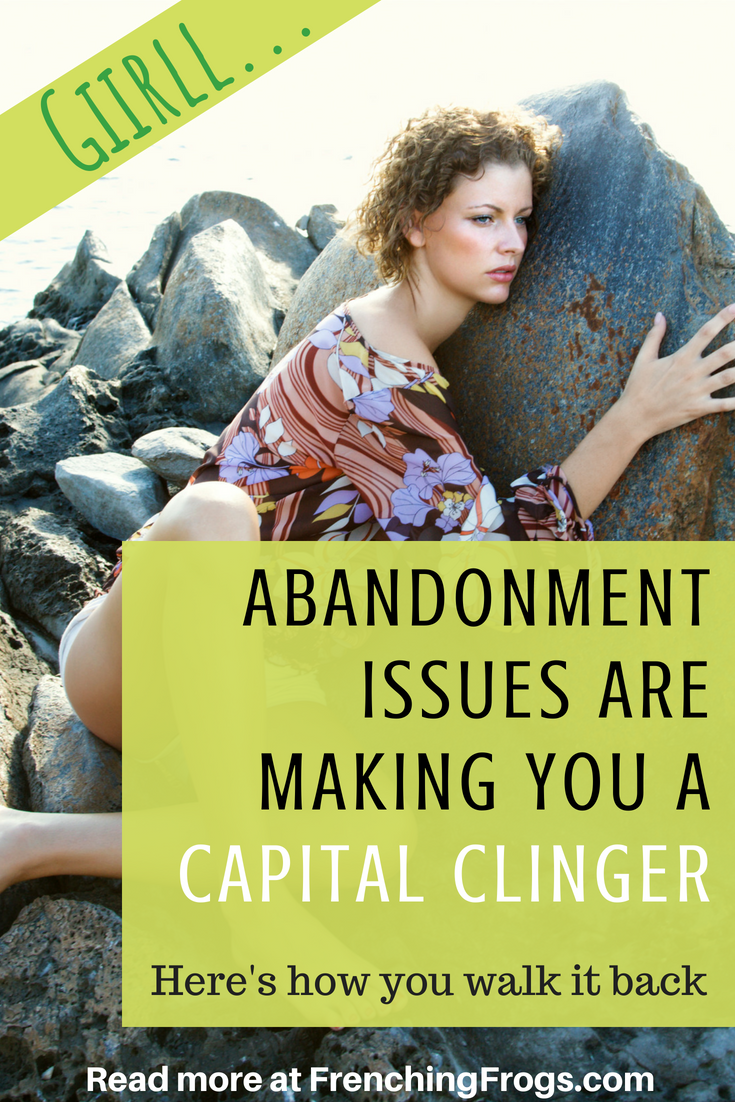Abandonment Issues Made You Clingy
- Esse D

- Aug 28, 2018
- 3 min read

Clingy.
That’s the last word you want someone to use when describing you in a relationship. While we don’t want people labeling us, sometimes we earn the labels fair and square. Being clingy is just a characteristic for some, but for others, clinginess is triggered by abandonment issues. Let’s discuss how your underlying abandonment issues may be contributing to your clingy nature in relationships.
Don’t leave me!
First, we’ll explore abandonment issues and how they can turn you into Captain Clinger. Honestly, abandonment issues can come from several different sources. You could have felt abandoned by a parent, family member, or ex romantic interest and it started to fester. If you’ve felt like that one person was supposed to always be there for you and they became suddenly unavailable, you’re a candidate for this transition. After a while of the abandonment replaying in your head, you start to be afraid to lose those people that are important in your life (now the feeling is transferring to EVERYBODY). This reaction isn’t foreign to most people (I’ve actually done my share of clinging), but it’s not ideal for your partner.
What’s my mom have to do with me being clingy?
Well, when you have a sense of abandonment from mommy (or whoever else), you start to long for “unbreakable bonds” and emotional consistency. It’s easy to think that being around your partner ALL the time will build an unbreakable bond, but this couldn’t be further from the truth. This will only make the non-clingy party want to get away or take “breaks” often. The other side of this is that some clingy people think that spending all of their time with their partner will deter the partner from attaching to anyone and anything else.
In reality, it probably makes them WANT to see and do anything else but spend every minute with their significant other.
How do I uncling?
Combatting clingy urges is a feat in itself. Clingers naturally reject separation and opportunities to do something without their partner. Why? Well because they fear the worst—their replacement. If you have accepted the fact that you’re a clinger, let your partner know that it’s something you are aware of and want to work on improving. (This may even increase their tolerance for your clingy antics.) Once you make the declaration, you have to start the hard work. No exceptions! Try identifying something your partner can do (nothing drastic or outrageous) that would make you feel more secure. This will be your security blanket while you pursue activities outside of hanging out with them.
Find new hobbies or maybe even business ventures to occupy your mind and time. I’m all for finding distractions that pay me (or generate opportunities). This could be an opportunity to reinvent yourself as a business mogul AND make yourself even more self-sufficient.
… but some people like clingy.
The people that LIKE clingy partners have a level of insecurity within themselves. The clinginess, to them, reads as assurance that they are desired. Actually, the people that like clingy are types of clingers themselves. Two clingers will most assuredly create a codependent relationship. This could go ALL BAD. If you’re a clinger, the solution isn’t quite to look for another clinger.
A normal level of clingy is okay, but when your past has created abandonment issues, it’s a recipe for disaster. Uncling as much as possible and focus on things outside of constantly focusing on your partner. You can do this!





Comments